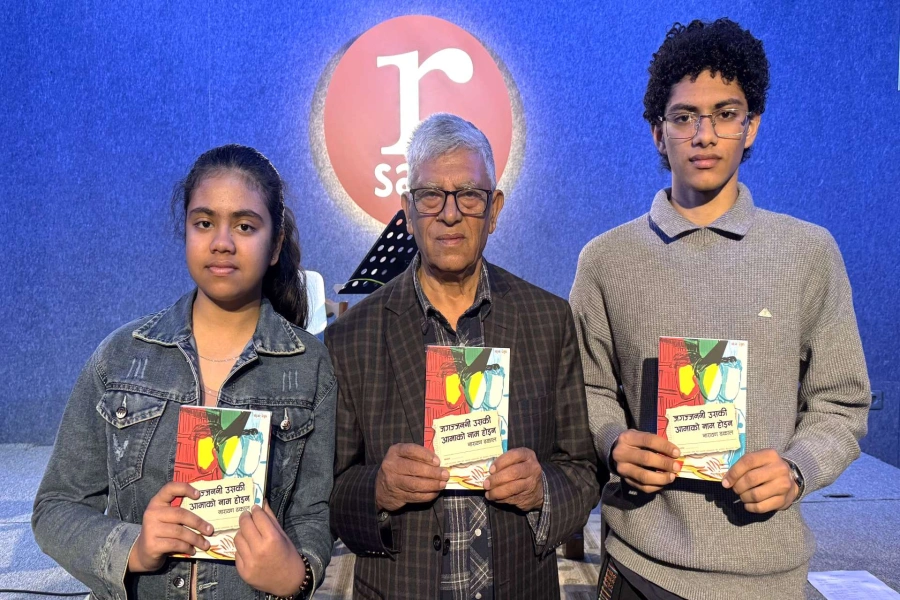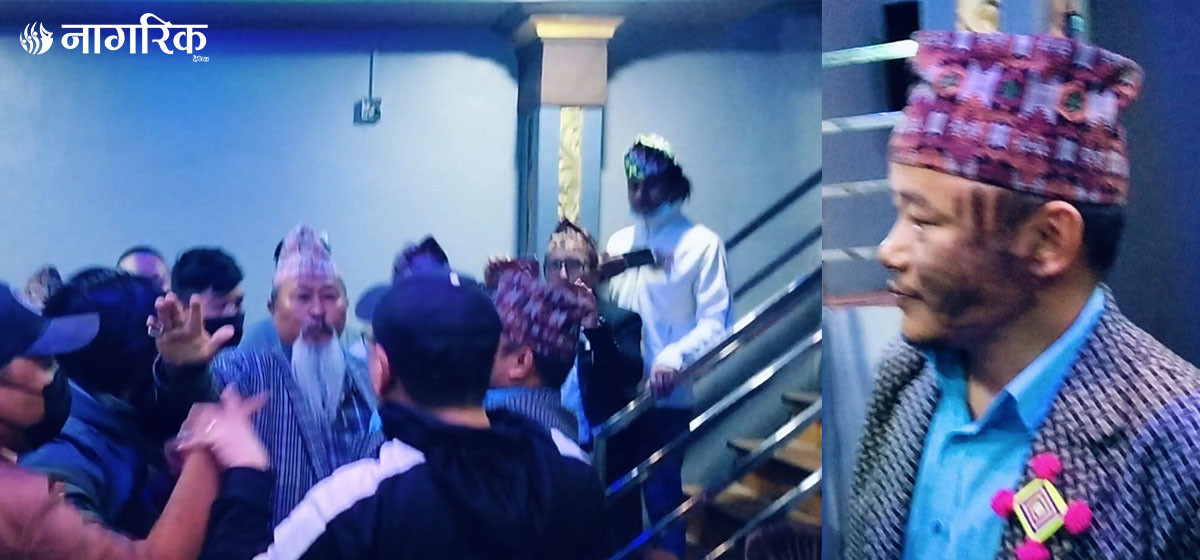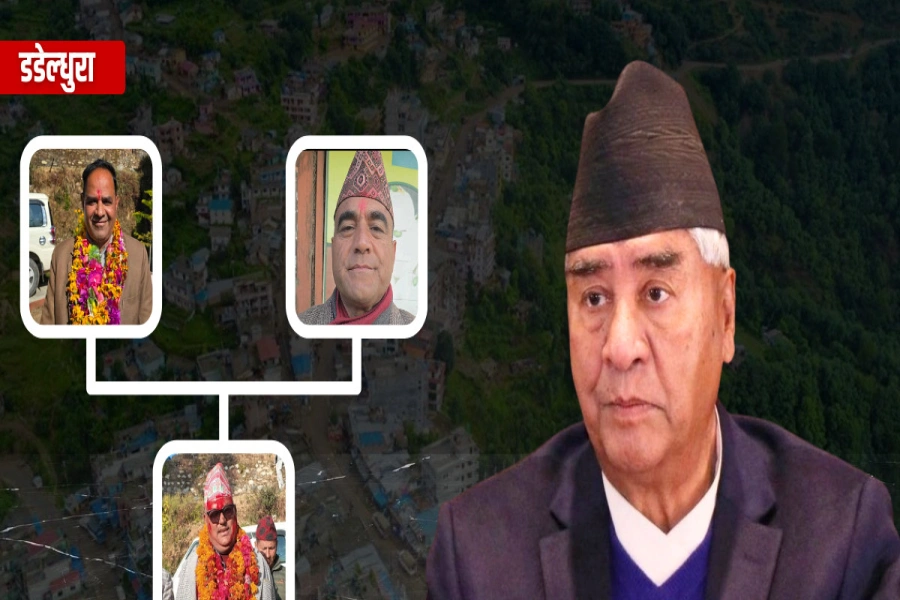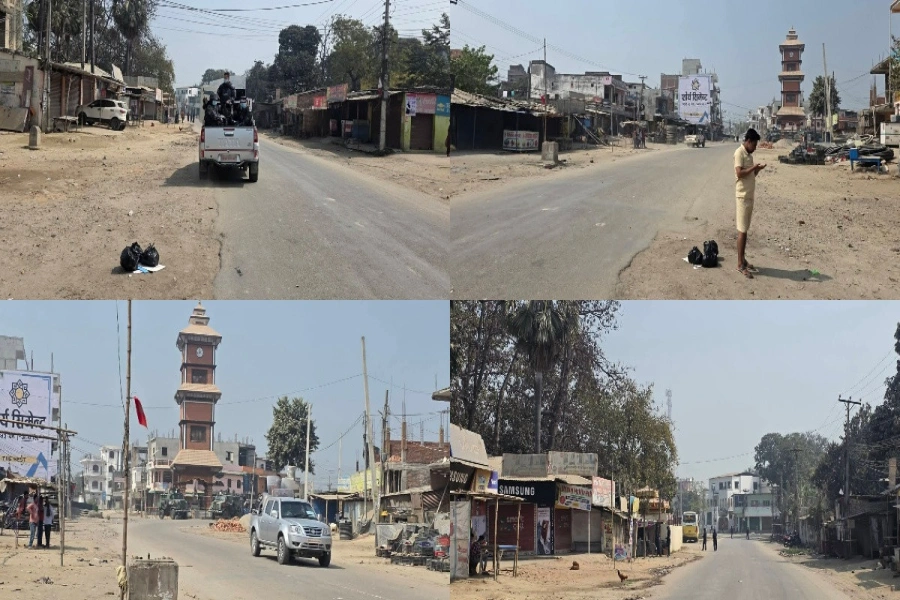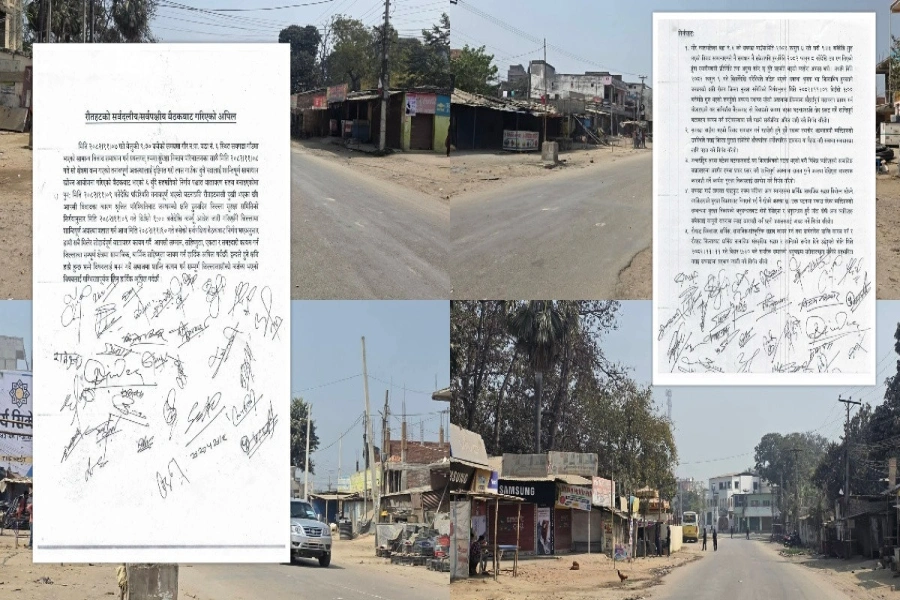Tension appears to be brewing in Taplejung as police personnel and agitating locals engage in frequent clashes following the Pathibhara Cable Car Project's expedited work. Locals oppose the project arguing that it not only undermines the cultural and religious identity of the Limbu/Yakthumba community, who have lived there for centuries, but also threatens their livelihoods. The project, located in the Pathibhara area of Phungling Municipality-11, Taplejung, is being developed and operated by Pathibhara Devi Mukumlung Cable Car Darshan Pvt. Ltd., a company under the IME Group. However, mounting protests have cast uncertainty over its future. The ongoing demonstrations took a violent turn on Saturday when police personnel and locals clashed as authorities attempted to provide security for the cable car company's construction work. Several police officers and locals were injured in the confrontation between law enforcement and the "No Cable Car" group, further escalating tensions. The government must take the demands of locals seriously before the situation worsens, as this protest is different from typical demonstrations over land compensation or financial benefits. Opposition to this project is primarily rooted in religious and cultural concerns.
Agitating locals argue that the construction of the cable car contradicts the beliefs and values outlined in Mundhum, the sacred scripture of the Kirat community. The Mukumlung Conservation Joint Struggle Committee, leading the opposition, insists that the project threatens the cultural and spiritual identity of the Limbu/Yakthumba community. Protesters maintain that "Pathibhara" is an integral part of Mundhum, the scripture and philosophy of their community, and that the project could ultimately endanger their existence by erasing sacred sites and disrupting cultural traditions. Beyond religious concerns, there are also fears about the economic impact on local livelihoods. Reports indicate that around 500 to 600 pilgrim helpers, who guide visitors to the temple, could lose their jobs. Additionally, approximately 45 hotels in the area and around 400 transport operators, who rely on seasonal pilgrimages, are likely to face displacement. Although the developers and the elected lawmaker from Taplejung have downplayed these concerns, the government must act seriously, especially when any development project threatens religious and cultural beliefs as well as livelihoods.
Pathibhara Cable Car Dispute: Why Are Locals Demanding a Halt t...

Almost all major development projects in Nepal are marred by collusion between developers and politicians. While politicians often receive large sums of money as rewards, developers take undue advantage of political backing for such projects. There have been instances where entire areas are monopolized, even against existing legislation, to extract extra benefits once cable car projects are developed. Developers of such projects have rarely prioritized the needs and well-being of locals, who should be the primary beneficiaries. The agitating locals in Taplejung appear to have similar fears. Notably, the National Human Rights Commission (NHRC) has urged the government to resolve the dispute over the cable car project through dialogue. The national human rights watchdog has called on the government to identify and address disagreements and disputes that have emerged during the development and construction of the project in a timely manner, emphasizing a human rights-oriented approach to development. Meanwhile, the Home Ministry has reportedly asked the Ministry of Federal Affairs and General Administration to coordinate efforts to resolve issues related to the project—an encouraging step in the right direction. The government must gain the confidence of agitating locals before proceeding with the project. Any attempt to push forward the controversial project using force will only invite further trouble in the future.



